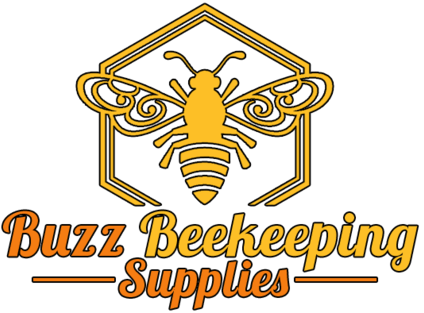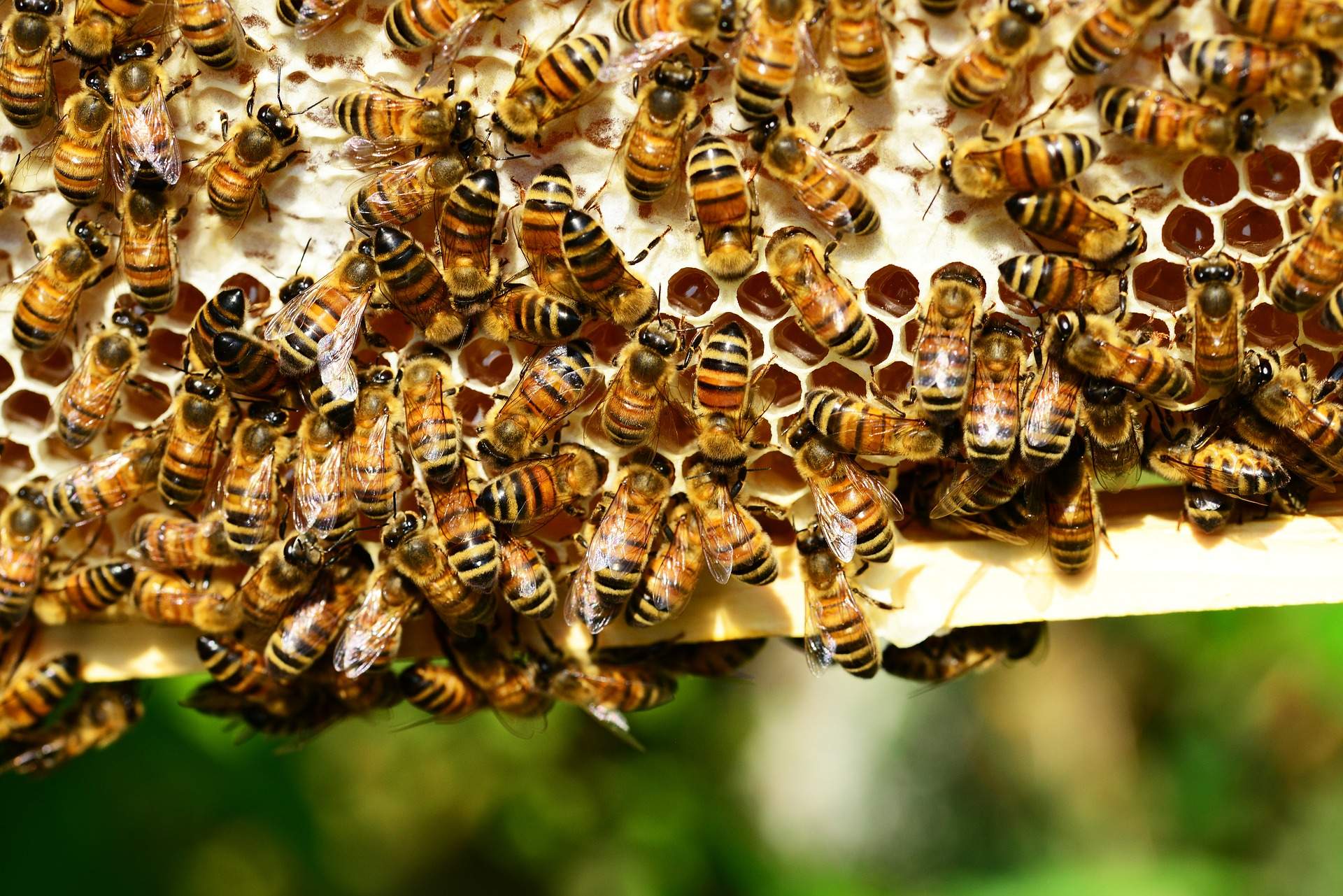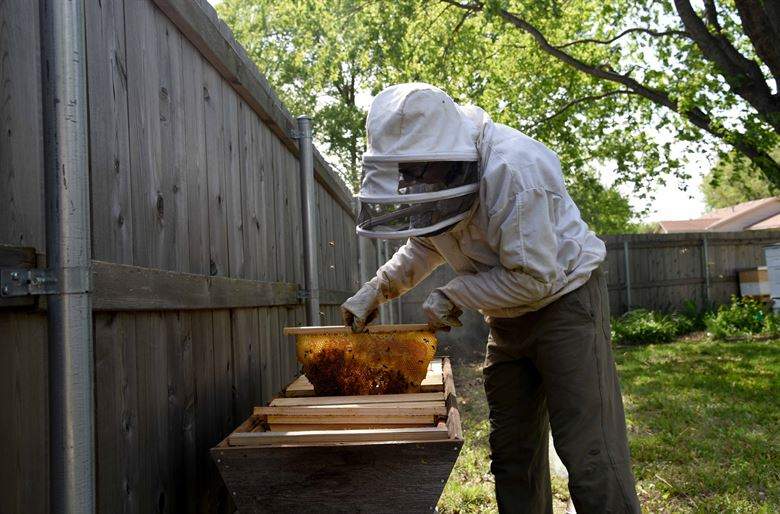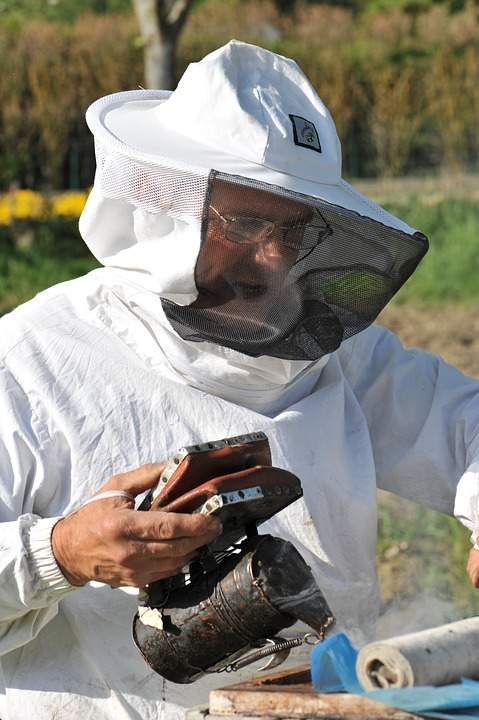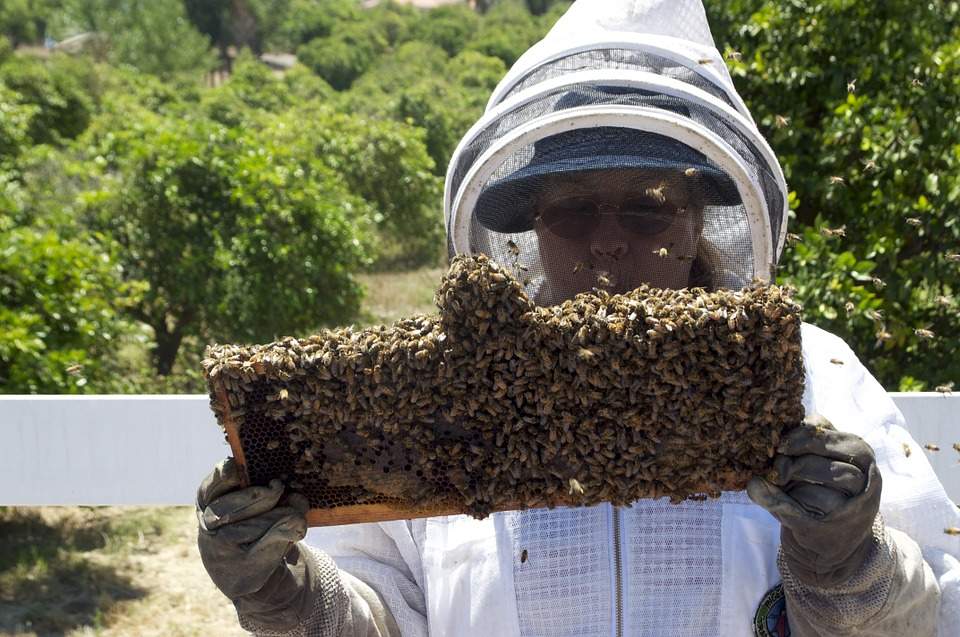How to Start Beekeeping in Florida
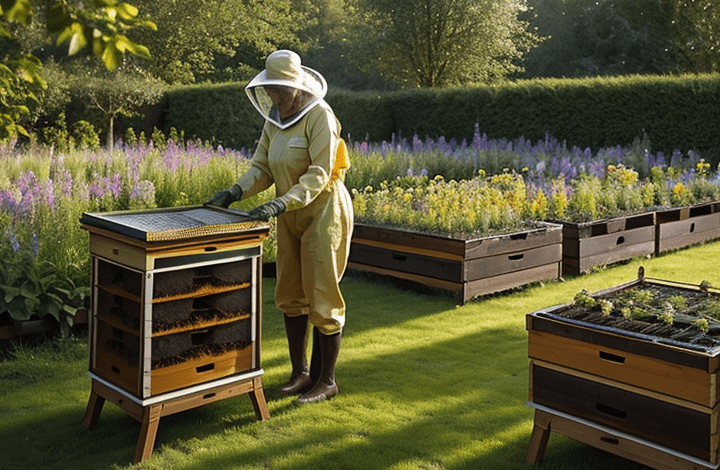
Florida’s Unique Climate and Agricultural Landscape
Florida, known as the Sunshine State, boasts a diverse and compelling climate that sets it apart from the rest of the United States. With its abundant sunshine, warm temperatures, and tropical breezes, this state creates a unique environment that offers unparalleled opportunities for agricultural pursuits, including beekeeping.
In Florida, the climate is predominantly humid subtropical, characterized by hot summers and mild winters. This climatic diversity makes it favorable for a wide range of agricultural activities throughout the year. The state’s extensive coastline, featuring marshes, swamps, and wetlands, further contributes to the uniqueness of its habitat. These ecological factors combine to create an extraordinary agricultural landscape where beekeeping thrives.
The Importance of Bees in Florida’s Ecosystem
Bees play a vital role in Florida’s fragile ecosystem, making their presence and conservation a matter of great significance. These buzzing insects are essential pollinators that facilitate the fertilization of flowering plants, which aids in the reproduction and survival of various flora species. Florida’s rich floral diversity, including citrus trees, blueberries, melons, and sunflowers, heavily relies on bees for pollination.
Moreover, bees contribute to the overall biodiversity of Florida’s ecosystem. The delicate balance of nature is intricately interwoven, and bees serve as a keystone species, helping to sustain the diverse web of life in this state. By pollinating plants, bees indirectly support other wildlife, as well as the survival of numerous bird and insect species that depend on these plants as a food source or habitat.
Aside from their ecological importance, bees also play a vital role in Florida’s agriculture. The state’s vast agricultural sector heavily relies on bees for crop pollination, contributing to the growth and success of Florida’s thriving agricultural economy. Honey production is also an essential part of beekeeping in Florida, as the state’s diverse flora yields a range of high-quality honey varieties.
An Introduction to Beekeeping in Florida
Beekeeping, also known as apiculture, is the practice of rearing and managing honeybee colonies. It is both a rewarding hobby and a vital agricultural industry. For newcomers to the world of beekeeping in Florida, understanding the specific considerations and techniques required for this unique environment is crucial.
This article will provide guidance for aspiring beekeepers, from understanding the distinct climate and landscape of Florida to appreciating the essential role bees play in the state’s ecosystem. As we delve deeper into the intricacies of successful beekeeping in Florida, we will explore the suitable beekeeping practices, the challenges one might encounter, and the rewards that come with nurturing these remarkable creatures.
By developing a comprehensive understanding of beekeeping in Florida, we can work together to foster sustainable practices, promote pollinator conservation, and ensure the continued growth of both our environment and our agricultural sector.
Legal Requirements and Regulations for Beekeeping in Florida
Before diving into the world of beekeeping, it is essential to familiarize yourself with the legal requirements and regulations governing this practice in Florida. As with any agricultural activity, there are certain guidelines and permissions that must be followed to ensure the wellbeing of both the beekeeper and the environment. Familiarize yourself with the following legal aspects:
- Registration: In the state of Florida, beekeepers are required to register their colonies with the Florida Department of Agriculture and Consumer Services. This registration process aids in disease control and facilitates communication between beekeepers and state agencies.
- Zoning Regulations: Ensure that your intended location for beekeeping complies with local zoning regulations. Some areas may have restrictions on beekeeping due to residential density or other factors. Check with your local government or county extension office to determine if any specific regulations exist in your area.
- Hive Placement: According to state regulations, beehives must be positioned a minimum of 25 feet from property lines and 100 feet from any public areas, such as roads or sidewalks. Additionally, hives should be situated in a manner that reduces the risk of disturbing neighbors.
Choosing the Right Location for Your Beehives

Selecting an appropriate location for your beehives is of utmost importance as it can greatly impact the success of your colonies. Consider the following factors when choosing a site:
- Sun Exposure: Honeybees thrive in sunny environments. Aim for a location where the hives receive ample sunlight throughout the day. However, be cautious of excessive heat or prolonged direct exposure to the scorching Florida sun, as this can negatively affect the bees.
- Wind Protection: Providing your beehives with some degree of wind protection is crucial, as strong gusts can disorient bees and hinder their foraging efforts. Consider natural windbreaks like trees, fences, or buildings when planning the placement of your hives.
- Accessibility: Ensure easy access to the beehives for regular inspections, maintenance, and honey collection. Placing the hives on a level ground, away from obstructions, will make these tasks more manageable.
Selecting and Ordering the Right Type of Bees for Florida’s Climate
Florida’s unique climate requires careful consideration when selecting the type of bees for your colonies. The warm and subtropical conditions, combined with the potential for hurricanes, influence the choice of bee species. Here are some options suited for Florida’s climate:
- Italian Bees: This breed, known for their docile nature and excellent honey production, adapts well to Florida’s climate. They are less prone to swarming and are highly respected for their hygienic behaviors.
- Carniolan Bees: These bees, originating from Central Europe, are renowned for their ability to adapt to different weather conditions. Carniolan bees also exhibit strong overwintering capabilities, a desirable trait for Florida’s mild winters.
- Local Strains: Opting for locally adapted bee strains can often lead to successful colonies. They have already acclimated to the region’s specific environment, pests, and diseases. Contact local beekeeping associations or experienced beekeepers to inquire about suitable local bees.
Once you have assessed the legal requirements, found an ideal location, and decided on the type of bees, you are ready to embark on your beekeeping journey. Remember to continue expanding your knowledge, seeking guidance from experienced beekeepers, and embracing the joy and rewards that come with this remarkable hobby.
Setting Up Your Beekeeping Equipment in Florida
Here, we will guide you through the essential equipment needed, the proper assembly and maintenance of your beehives, and the crucial tools that will help you succeed in your beekeeping journey.
Types of Equipment Needed for Beekeeping in Florida
Before diving into the exciting world of beekeeping, it is crucial to gather the necessary equipment to ensure the well-being of your bees and facilitate your own management tasks. Here are the essential items you will need:
1. Beehive Components: A complete beehive consists of various components, including the bottom board, hive bodies, frames, queen excluder, inner cover, and outer cover. These components serve as the home for your bees and play a vital role in maintaining the hive’s temperature, ventilation, and security.
2. Protective Gear: Beekeeping is an activity that requires proper safety measures. Invest in a quality beekeeping suit that includes a hat, veil, and gloves. This protective gear will shield you from bee stings and minimize the risk of any potential harm.
Assembling and Maintaining Your Beehives
Now that you have all the necessary components for your beehive, it’s time to assemble them correctly and ensure their ongoing maintenance. Follow these steps to set up your beehives effectively:
- Bottom Board: Start by placing the bottom board, which provides the foundation of the hive, on a level surface. Position the entrance reducer in its appropriate slot to regulate the hive’s entrance size, especially during the early stages.
- Hive Bodies and Frames: Stack the hive bodies on top of the bottom board, ensuring a snug fit. Each hive body should contain frames, which act as the structural support for honeycombs. Install the frames by evenly spacing them within the hive bodies, allowing the bees to build their honeycomb naturally.
- Queen Excluder, Inner Cover, and Outer Cover: Place the queen excluder on top of the uppermost hive body. This device prevents the queen bee from accessing certain sections of the hive, ensuring separation between brood areas and honey storage. Then, add the inner cover and outer cover to protect the hive from external elements.
Regular hive maintenance is essential for a thriving bee colony. Regularly inspect the hive for signs of disease, damage, or congestion. Additionally, ensure proper ventilation and prevent the growth of mold or other harmful substances by regularly cleaning the hive components as necessary.
Essential Tools for Beekeeping in Florida
Beekeeping involves various management tasks that require specific tools for efficiency. Here are essential tools every beekeeper in Florida should have:
1. Smoker: A beekeeper’s smoker is an invaluable tool used to calm bees during hive inspections or honey harvesting. The smoke distracts and calms the bees, making it easier and safer to handle the hive.
2. Hive Tool: This tool serves as a multi-purpose instrument for beekeepers. It helps pry apart beehive components, scrape propolis and wax, and provides leverage during hive inspections.
3. Bee Brush: A soft-bristled bee brush is useful for gently moving bees aside without causing harm. It helps you access frames or other hive components without injuring or unnecessary agitation.
4. Feeder: Bee feeders are essential, especially during times of nectar scarcity. They ensure your bees have a sufficient supply of food and help prevent starvation.
By acquiring and using the proper beekeeping equipment and maintaining it regularly, you are well on your way to establishing a thriving beekeeping operation in Florida.
Maintaining and Monitoring Your Beehives
Beekeeping in Florida comes with its own set of challenges and responsibilities. As a beekeeper in the sunshine state, it is crucial to understand the regular tasks and responsibilities involved in the care of your beehives. Additionally, managing common bee diseases and pests specific to Florida’s environment is essential for maintaining the health of your colonies.
Regular Tasks and Responsibilities of Beekeepers
1. Hive Inspections: Regular inspections are necessary to monitor the health and productivity of your bee colonies. During inspections, observe the population, brood pattern, honey stores, and any signs of disease or pests.
2. Feeding and Supplementing: Depending on the availability of nectar and pollen sources, you may need to provide supplementary feeding to your bees, especially during dearth periods. This can include sugar water or commercially available bee supplements.
3. Supering and Harvesting: In Florida, where honey flows can be abundant, beekeepers need to add supers or bee boxes to their hives to provide additional space for honey production. Monitor the hive’s honey stores and harvest surplus honey when appropriate.
4. Swarm Prevention and Management: Florida’s warm climate can lead to rapid colony growth, increasing the risk of swarming. Implement swarm prevention techniques such as providing ample space, performing regular inspections, and splitting colonies when necessary.
5. Queen Management: Keep track of the performance of your queen and ensure she is healthy and productive. Requeen if necessary to maintain a robust and productive colony.
Identifying and Managing Common Bee Diseases and Pests Found in Florida
- Varroa Mites: Varroa destructor mites are a significant threat to bee colonies in Florida. Regular monitoring and treatment with approved methods, such as organic acids or integrated pest management (IPM) strategies, are crucial to mitigate the impact of these tiny parasites.
- Small Hive Beetle (SHB): SHBs are known to infest and damage weakened hives. Monitoring beetle populations and implementing techniques like screen bottom boards and oil traps can help control their spread.
- Foulbrood Diseases: American Foulbrood (AFB) and European Foulbrood (EFB) are bacterial infections that can weaken and kill colonies. It is vital to promptly identify and report any suspected cases to local authorities. Follow proper protocols, such as burning infected equipment, to prevent disease transmission.
- Nosema: Nosema is a fungal parasite that affects honeybees, impacting their digestion and overall health. Regular hive inspections and treatment with appropriate medications, such as fumagillin, can help manage Nosema outbreaks.
- Wax Moths: Galleria and Achroia species of wax moths can cause damage to stored combs and weaken colonies. Proper storage and maintenance of equipment, combined with regular inspections, can help prevent wax moth infestations.
Maintaining a Healthy Hive Environment in Florida’s Variable Climate
- Ventilation: Florida’s warm and often humid climate necessitates proper hive ventilation to prevent heat stress and excess moisture buildup. Hive ventilation techniques, such as screened bottom boards and top entrance/ventilation holes, aid in maintaining a healthy hive environment.
- Providing Shade: Shielding beehives from direct sunlight during scorching summer months is crucial to prevent overheating. Placing hives under natural shade or constructing shade structures can help regulate hive temperatures.
- Water Sources: Ensuring access to clean and fresh water near the hive is vital for the bees’ hydration needs, especially during periods of low rainfall. Consider providing water sources like birdbaths or shallow containers with stones for bees to safely land and drink from.
- Swarm Traps: Considering the higher likelihood of swarms in Florida, having swarm traps strategically placed can help capture and relocate swarming colonies, preventing them from establishing feral colonies in undesirable locations.
Growing Your Beekeeping Skills
As you continue your beekeeping journey in the beautiful state of Florida, it’s important to constantly expand your knowledge and skills in order to ensure the success of your apiary. Fortunately, there are numerous resources and opportunities available to help you grow as a beekeeper and become an integral part of Florida’s vibrant beekeeping community.
Resources for Continued Learning and Education in Beekeeping in Florida
1. Florida State Beekeepers Association (FSBA):
The FSBA is an excellent resource for beekeepers of all experience levels. They provide access to workshops, conferences, and educational materials, offering opportunities to enhance your knowledge and skills. Joining the FSBA will connect you with experienced beekeepers, researchers, and other industry professionals, providing valuable networking opportunities.
2. University of Florida’s Honey Bee Research and Extension Laboratory:
The Honey Bee Research and Extension Laboratory at the University of Florida conduct vital research and provide valuable educational resources for beekeepers. Their cutting-edge research helps to address the specific challenges faced by Florida beekeepers, such as pest and disease management, best management practices, and breeding programs. Take advantage of their online resources, workshops, and extension services to stay up-to-date with the latest research and advancements in beekeeping.
3. Local Beekeeping Clubs and Associations:
Consider joining a local beekeeping club or association in your area. These organizations often host regular meetings, field days, hands-on workshops, and mentoring programs. Engaging with other beekeepers allows you to exchange knowledge, learn from their experiences, and establish a support network within your local community. Some notable beekeeping clubs in Florida include the Heartland Apicultural Society, South Florida Bee Club, and Central Florida Beekeepers Association.
Pro Tip
Many local bee clubs buy sugar in bulk, so they may pass the savings on to the members. One of the local clubs in my area sells a 10 lb bag of sugar for only $2.50
Opportunities to Get Involved in Florida’s Beekeeping Community
1. Volunteer at Local Apiaries and Bee Research Facilities:
Reach out to local beekeepers, universities, and bee research facilities to inquire about volunteer opportunities. Working alongside seasoned beekeepers and researchers will provide you with invaluable hands-on experience, expose you to different beekeeping techniques, and deepen your understanding of bee biology and hive management.
2. Participate in Local Events and Beekeeping Workshops:
Florida hosts a myriad of beekeeping events, conferences, and workshops throughout the year. These events often feature renowned beekeeping experts who share their knowledge and insights. Attending these gatherings not only provides a wealth of information but also allows you to meet fellow beekeepers, exchange ideas, and foster lasting relationships within the beekeeping community.
Strategies for Expanding Your Beekeeping Operation
1. Consistent Hive Inspections and Record-Keeping:
Regular hive inspections are vital in ensuring the health and productivity of your colonies. Implement a consistent schedule for inspecting your hives and keep detailed records of your observations and interventions. By staying informed about the status of your colonies, you can promptly address any issues that may arise and make informed decisions to optimize the growth of your apiary.
2. Expanding Your Bee Yard:
As you gain experience and confidence, consider expanding your bee yard by increasing the number of colonies. However, be cautious not to overstress your resources or exceed your ability to effectively manage the additional colonies. Gradually expanding your bee yard will allow you to scale up while maintaining the high standards of care and attention required for successful beekeeping.

3. Specialize in Local Honey Varieties:
Florida offers a diverse range of flora, resulting in an abundance of unique and delicious honey varieties. Consider specializing in producing specific local honey varieties that are highly sought after in the market. Understanding the local flora and how it impacts honey production will help you determine the best locations for your hives and optimize honey production.
A Final Word
We hope this guide has been helpful in giving you a better understanding of what beekeeping involves when it comes to starting up in Florida. From understanding the beekeeping supplies and equipment needed, to being aware of the relevant state laws and regulations, beekeeping in Florida is an exciting adventure.
Frequently Asked Questions about How to Start Beekeeping in Florida:
What are the essential requirements for starting beekeeping in Florida?
- To begin beekeeping, you will need a suitable location with access to plants and water sources, proper beekeeping equipment (hive, protective gear, tools), knowledge of bee biology and behavior, and a supportive community or mentor to help you throughout your beekeeping journey.
Can I keep bees even if I live in an urban area of Florida?
- Yes, beekeeping can be practiced in urban areas as long as you adhere to local regulations and ensure your bees have access to suitable forage options such as nearby gardens, parks, or green spaces.
How do I acquire honeybee colonies for my hive in Florida?
- Beekeepers can obtain honeybee colonies through buying packages, nucleus colonies, or by capturing swarms. It is recommended to connect with local beekeeping associations or reputable breeders to acquire healthy bees that are suited to the Florida climate..
Are there any laws or regulations I should be aware of before starting beekeeping in Florida?
- Yes, it’s essential to familiarize yourself with local and state regulations regarding beekeeping. Requirements may vary, including registration, hive placement guidelines, and notification of nearby neighbors or authorities. Ensure you comply with any beekeeping-related ordinances or laws in your area.
